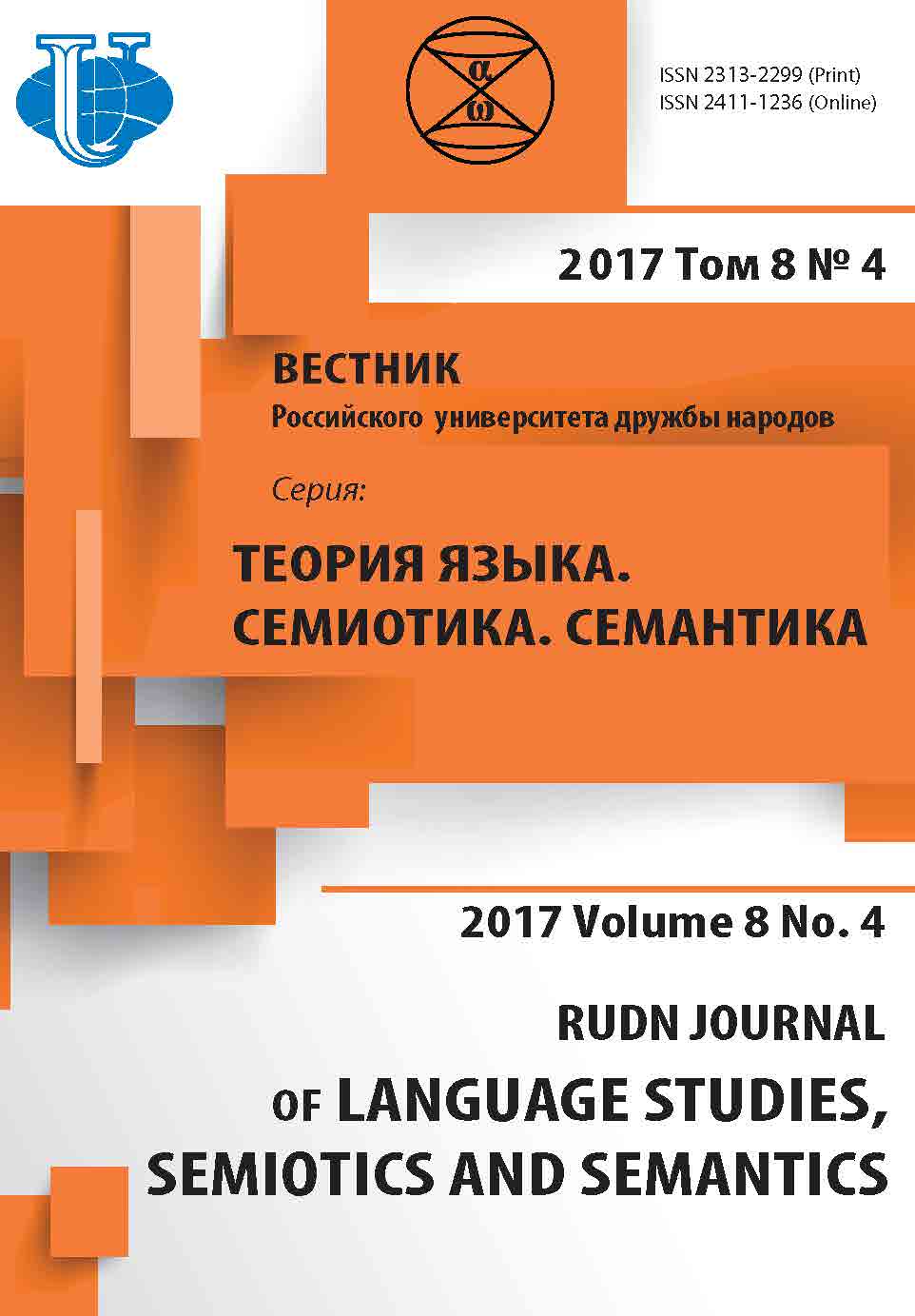POLITICAL AND SOCIAL STATUS OF “OLD” DIASPORA LANGUAGES IN THE USSR
- Authors: Nedopekina E.M1
-
Affiliations:
- RUDN University
- Issue: Vol 8, No 4 (2017)
- Pages: 1118-1130
- Section: ARTICLES
- URL: https://journals.rudn.ru/semiotics-semantics/article/view/17991
- DOI: https://doi.org/10.22363/2313-2299-2017-8-4-1118-1130
- ID: 17991
Cite item
Full Text
Abstract
For non-indigenous peoples of the USSR, which can be roughly described as “old” Diaspora are Assyrians, Bulgarians, Hungarians, Greeks, Koreans, Mongols, Germans, Persians, Poles, Romanians, Slovaks, Turks, Finns, Gypsies, Czechs. Some of them managed to preserve their national languages for a variety of reasons, languages, others are more subjected to the influence of the Russian language. In some cases the existence of the ethnic group in the Soviet Union has allowed him to acquire script for their language, but there are some examples of the idiom of extinction in the USSR. The article contains at-tempts to determine the social status of the non-autochthonous diasporas languages living in the Soviet Union. Those efforts are based on the political situation in the country, state ideology, the value of the lan-guage for its speakers and the level of its prevalence. The text also offers a brief description of the “old” diasporas languages, some information about the scope of their use and ways of preserving them at the level of each diaspora and the state in general.
Keywords
About the authors
Ekaterina M Nedopekina
RUDN University
Author for correspondence.
Email: enedopekina@gmail.com
Nedopekina Ekaterina Mikhailovna: PhD in Philology, PhD in Slavic Studies (Bordeaux Montaigne University, France), Assistant of the General and Russian Linguistics Department at Philological Faculty (Peoples’ Friendship University of Russia); English Language Teacher at the Institute of Retraining and Advanced Training of the Peoples’ Friendship University of Russia; scientific interests: minority languages, language contacts, study of new sociolinguistic spaces and issues of linguistic and ethnic identification
Mikloukho-Maclaya Str., 10-2A, Moscow, Russia, 117198References
- Arutûnov, S.A. (2000). Diaspora is a process In Ethnographic Review. Moscow: Nauka, n o pp. 74—78. (In Russ.).
- Dešeriev, Û.D. (1970). Modern methodology, theory and practice of planning and forecasting of language development. Moscow. (In Russ.).
- The Jewish issue: in search for an answer (documents of 1919—1926) (2003). Vinnitsa: the Globus-press publishing house. (In Russ.).
- The Supreme Soviet of the RSFSR Law “On the Rehabilitation of the Repressed Pe oples”. URL: http://base.garant.ru/10200365/ (accessed: 12.08.2016). (In Russ.).
- The USSR Law “On the Languages of the USSR Peoples” 24.04.1990 URL: http://legalussr.narod.ru/data01/tex10935.htm (accessed: 12.08.2016). (In Russ.).
- Kolosov, V.A., Golubkina, T.A. & Kujbyšev, M.V. National relationships URL: http://ecsocman.hse.ru/ data/081/302/1217/ons5-9 6_-_0034-46.pdf (In Russ.).
- Materials of the Chernivtsi conference (1931). Vilnius: Izdanie IVO. (In Russ.).
- Popkov, V.D. (2002) “Classical” diasporas: the question of their term definition In Diaspora. Mo scow, n o 1. pp. 6— 22. (In Russ.).
- Resolution of the RSFSR Council of Ministers No. 658 “On Accession to Work of Gypsies Involved in Vagrancy”, October 26, 1956. (In Russ.).
- Tiškov, V.A. (2001). Historical phenomenon of diaspora IN National Diasporas in Russia and abroad in the XIX—XX centuries. Proceeding Yu.A. Polyakova and G.Ya. Ta rle. Moscow. pp. 9—44. (In Russ.).
- Toropov, V.G. (1999). History of the Gypsy language study in Russia. In Gypsies. Proceeding, Moscow: Institute of Ethnology and Anthropology. N.N. Miklukho-Maklaya. pp. 16—26. (I n Russ.).
- Tosenko, Ž.T. & Captykova, T.I. (1996). Diaspora as an object of sociological research. In Socis. Moscow: Editorial, n o 12. pp. 33—42. (In Russ.).
- The Supreme Council Presidium Decree “On the termination of restrictions on the rights of the Germans and members of their families who are in a special settlement”, December 13, 1955. URL: http://www.libussr.ru/doc_ussr/ussr_5049.htm (In Ru ss.).
- Languages of the USSR peoples. In 5 volumes. Moscow, 1966—1968. (In Russ.).
Supplementary files












